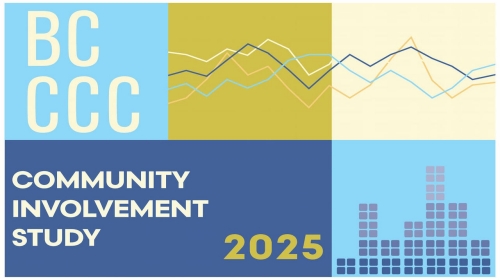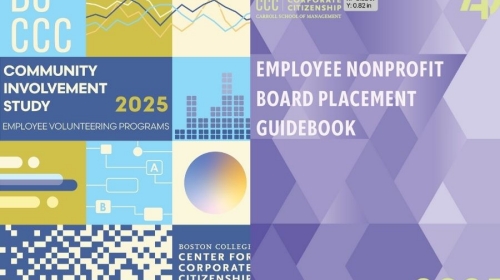The following is excerpted from Issue 24 of The Corporate Citizen. To learn more about how you can develop effective corporate citizenship programs that deliver business AND social value, consider joining us in San Diego January 14-18 for the Accelerated Certificate Summit—and earn our Certificate of Corporate Citizenship Practice in HALF the time at HALF the cost!
 Ally Financial is recognized as a leading digital financial services company with a reputation for delivering innovative approaches to online banking. Unlike most of its competitors, Ally Financial is a completely digital finance company (all customer interactions happen online or on the phone).
Ally Financial is recognized as a leading digital financial services company with a reputation for delivering innovative approaches to online banking. Unlike most of its competitors, Ally Financial is a completely digital finance company (all customer interactions happen online or on the phone).
This unique approach enables Ally customers to save and invest for their futures while on the go. Its trajectory of success illustrates the powerful potential of integrity, adaptability, and a tireless dedication to improving the lives of its customers.
Founded in 1919 as GMAC, a division of General Motors, the company originally worked to meet the rising consumer demand for automobiles by helping dealers finance and maintain their inventories. Over the years, that purpose evolved and expanded in a number of ways. In 2010, the company evaluated the current business model closely, assessed specific challenges and opportunities, and decided to realign the company’s purpose while simultaneously reaffirming its commitment to integrity. The new company became Ally Financial—its name clearly defining the role it hoped to play in its customers’ lives. It completed its transformation and went public in 2014.
“In less than a decade, Ally has transformed from a captive auto finance company to a diversified digital financial services provider,” said Ally CEO Jeffrey Brown. “As we have grown and continued to navigate new challenges and approach new opportunities, there has been one constant—a relentless commitment to do right by our customers.”
Ally’s ‘Do It Right’ mantra is evident in its entire business strategy—and is built on the concept of relentless innovation. The company’s entire suite of offerings —from banking to auto and home loans to investing—is entirely digital, enabling its customers to make the most of their money no matter where they are. It supports these services with more than 8,000 dedicated employees and formal corporate citizenship initiatives designed to ensure the financial health of its customers and communities. Ally structures these efforts so that they align with its overall business purpose and makes the best use of its unique resources to help improve economic mobility for all.
The company’s Wallet Wise program, for example, is a free financial education program that provides a basic foundation for sound financial planning and offers helpful advice for those seeking to save, invest, or finance a vehicle. The courses are offered both online and in person, and are popular with Ally customers and noncustomers alike. In fact, nearly 110,000 consumers have completed a Wallet Wise course since 2011, with 11,205 people participating in 2017 alone.
For the past several years, Ally has held a special series of Wallet Wise events in Detroit and North Carolina as part of Money Smart Week, a national public awareness campaign coordinated by the Federal Reserve Bank of Chicago to help individuals and families better manage their personal finances.
“Ally is committed to helping consumers build healthy habits, when it comes to their personal finances and participating in Money Smart Week has been a great way to connect with local communities and put this goal into action,” said Alison Summerville, Ally business administration executive and head of corporate citizenship. “This year we expanded our participation as a National Sponsor of the Money Smart Week Kids Read—a program for children 5-8 years of age that offers free books and discussion guides for families who attend events.”
As part of the week’s events, nearly 7,000 metro Detroit students were treated to magic shows that not only entertained them, but also worked to strengthen their financial literacy. These students walked away with a copy of Planet Zeee and the Money Tree, a book Ally created for families to teach kids the basics of money management.
The book was developed in response to a survey conducted by Harris Poll on behalf of Ally, which found that—while families appreciate the importance of financial planning, they may need some help in communicating healthy money habits to their children. Specifically, 83 percent of parents expressed that they believe saving money is one of the most important money skills children should learn, but only 13 percent of parents said they regularly talk to their children about money and/or financial matters. Now, the company is driving further engagement through its new interactive game “What’s Zeee Answer?”
Financial education may be a vital component of Ally’s corporate citizenship efforts to impact economic mobility, yet it is not the only way Ally supports its communities. The company is also investing heavily in workforce preparedness and digital job training, as well as affordable housing. Through this multipronged approach, it hopes to break down the barriers that limit upward mobility—especially in its headquarter cities.
“Our hometowns are Detroit and Charlotte, which are 43rd and 50th in a study by the National Bureau of Economic Research that measured the extent to which children’s opportunities for upward economic mobility are shaped by the neighborhoods in which they grow up,” said Summerville.[i] “That means the communities closest to us need more opportunity and education to help children and adults climb the socioeconomic ladder.”
Ally has partnered with organizations such as Habitat for Humanity, Dress for Success, and Junior Achievement to provide those in its communities with the stability and support they need to escape the cycle of poverty. The company has also stepped up as a premier sponsor of the PGA TOUR Champions event: The Ally Challenge. For the next three years, its support will help fund organizations in the Flint and Southeastern Michigan areas, including the Community Foundation of Greater Flint, Junior Achievement of Southeastern Michigan, The Ally Challenge Scholarship, and the Midnight Gold Program. From early childhood education to personal development to post-secondary scholarships, Ally’s engagement with these organizations will enable a healthier and more prosperous future for underserved youth.
Ally’s giving and volunteer efforts not only benefit the communities it serves, they also support and engage its employees—a primary objective of the company. At Ally, leaders know that employee dedication is vital to the superior customer service that has served to make it one of the leading financial institutions in the country—especially among millennials and mobile users. That’s why the company is committed to engaging the full potential of its workforce through diversity and inclusion initiatives.
Recently, Ally has demonstrated this commitment by signing onto the CEO Action for Diversity & Inclusion™ pledge, which seeks to mobilize the business community to take cohesive action on diversity and inclusion issues. In signing the pledge, Ally has promised to:
- continue to make workplaces trusting places to have complex, and sometimes difficult, conversations about diversity and inclusion,
- implement and expand unconscious bias education, and
- share best—and unsuccessful—practices.
“I believe that by embracing, leveraging, and celebrating our differences, we can better achieve our strategic objectives and drive value for associates, communities, and shareholders,” said Brown.
Now, the company is taking the steps to move toward a more inclusive culture by introducing formal policies and practices, such as prohibiting the traditional salary history questions from its recruitment process. Studies show such questions often have the unintended side effect of prolonging pay inequities among women and other underrepresented groups, as low salaries often follow candidates from job to job.
While certain states—including Massachusetts and California—have begun to ban the questions, the choice is uncommon in the private sector. For Ally, however, it is just one more forward-leaning move in the company’s long history of progressive transformation.
“Ally’s spirit of innovation has been a connective thread that drives the adaptability and success of our businesses,” said Brown. “We are committed to continuing to raise the bar and ensure a bright future for our customers, employees, and communities.”
[i] Chetty, R., & Hendren, N. (2016). The impacts of neighborhoods on intergenerational mobility II: County-level estimates (No. w23002). National Bureau of Economic Research.









